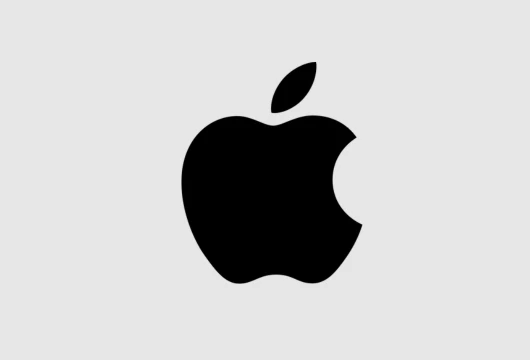Ruling on Apple Watch Sparks Debate on Offsets, Greenwashing, and Future Sustainability Standards
In a landmark ruling that may reshape corporate climate claims worldwide, a German court has declared that Apple cannot market its Apple Watch as “carbon neutral.” The court found that the company’s reliance on short-term reforestation projects failed to meet the long-term commitments implied by such a label.
The decision comes amid growing scrutiny of corporate climate pledges and the credibility of carbon offset markets. While the ruling challenges Apple’s specific claims, it also sets a precedent that could drive more transparency, stronger standards, and genuine progress toward sustainability across industries.
Why the Court Rejected Apple’s Carbon Neutral Claim
Apple first introduced a “carbon neutral” Apple Watch in 2023, stating that it had reduced production-related emissions by 75% and offset the remaining 25% through carbon credits tied to forests in Paraguay and Brazil.
But the lawsuit, brought forward by German nonprofit Deutsche Umwelthilfe (DUH), questioned the validity of these offsets. The court’s ruling revealed:
- Short-term leases: About 75% of the reforestation projects were secured only until 2029.
- Paris Agreement misalignment: Customers reasonably assume carbon neutrality would last until at least 2050 — the benchmark for global net-zero targets.
- Uncertain permanence: Forest contracts lacked guarantees of extension, raising concerns about long-term carbon storage.
“Carbon emissions can affect the climate for over 1,000 years,” DUH noted, arguing that temporary projects cannot justify claims of permanent neutrality.
The Bigger Picture: Greenwashing and Carbon Offsets
The ruling spotlights a wider issue: the credibility of carbon offsets.
- A 2023 investigation by The Guardian, Die Zeit, and SourceMaterial found that 90% of rainforest carbon offsets by leading certifier Verra were “worthless.”
- A 2024 study in Nature Communications concluded that 87% of offsets used by 20 major companies were at high risk of not delivering real emission reductions.
- A Reuters analysis earlier this year revealed that two-thirds of conservation projects in the Amazon tied to offsets were linked to illegal deforestation.
The lack of regulation in voluntary carbon markets has created an environment where well-meaning consumers and companies risk being misled. DUH stated bluntly: “In most cases, we see falsified information regarding ‘additionality,’ i.e., that a forest is being protected when it was never endangered in the first place.”
Apple’s Response and Next Steps
Apple has one month to either appeal the decision or remove the “carbon neutral” label from its advertising in Germany. While declining to comment on the duration of its reforestation leases, the company told ESG Dive that the court had “broadly upheld our rigorous approach to carbon neutrality.”
At the same time, Apple is already phasing out the use of the term “carbon neutral” from its communications. This shift aligns with the upcoming European Union Empowering Consumers for the Green Transition Directive (EmpCo Directive), which from 2026 will ban unverified use of “carbon neutral” claims in marketing.
The company continues to pursue its overarching goal of becoming fully carbon neutral by 2030, though the ruling could push it — and peers — toward stricter reliance on actual emissions cuts rather than offsets.
Global Implications: A New Standard for Carbon Neutrality
The case holds significance beyond Apple. Environmental groups in other EU countries can now cite the German court’s decision when challenging similar claims, thanks to the harmonized rules under the EmpCo directive.
This could spell the end of “offset-heavy” neutrality claims and accelerate a shift toward:
- Direct emissions reductions through clean energy, efficiency, and circular design.
- Transparent reporting of carbon data with third-party audits.
- Long-term projects that guarantee permanent carbon storage.
DUH has already indicated it will monitor companies like Shell, BP, and TotalEnergies for misleading carbon-neutral marketing.
Why This Matters for Consumers and Investors
The ruling is not just a legal technicality — it reshapes how consumers, investors, and regulators interpret “carbon neutral” products.
For consumers, it builds awareness that offset-based claims may not always reflect real-world climate impact. For investors, it signals rising litigation and reputational risks if companies overstate sustainability progress.
And for policymakers, it highlights the urgency of regulating voluntary carbon markets to ensure climate promises are not undermined by greenwashing.
Lessons for Businesses Worldwide
The Apple case provides several takeaways for global companies:
- Avoid over-reliance on offsets — prioritize emission cuts within operations and supply chains.
- Invest in permanence — if offsets are used, they should guarantee long-term carbon storage beyond 2050.
- Ensure transparency — provide verifiable, audited data on climate claims.
- Prepare for stricter rules — anticipate that EU-style consumer protection laws will spread globally.
As the voluntary carbon market faces skepticism, companies seen as truly transparent and science-based in their approach may stand out as leaders.
Shaping the Future of Carbon Neutral Products
While Apple’s setback has attracted headlines, many sustainability experts view it as a positive turning point. By holding companies accountable, courts and regulators are pushing the corporate world toward more genuine climate strategies.
If adopted widely, such standards could foster greater consumer trust, investor confidence, and climate credibility.
In fact, some analysts believe that rulings like this will accelerate innovation in low-carbon materials, renewable energy, circular product design, and long-term carbon removal technologies — solutions that reduce emissions at the source rather than rely on offsets.
From Marketing Slogan to Meaningful Action
The German court’s decision against Apple’s carbon neutral claim is more than a legal ruling — it’s a wake-up call for the entire corporate world. As climate deadlines near, companies will face growing pressure to prove their sustainability claims with hard evidence, not just marketing language.
By demanding accountability, the ruling encourages a shift from short-term offsets to real, measurable, and lasting climate action. And that could be the push the world needs to make carbon neutrality not just a slogan, but a scientifically sound reality.
For more in-depth analysis and inspiring climate news, click here.

